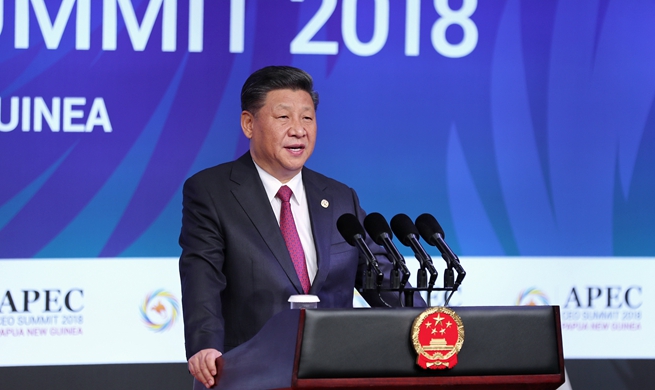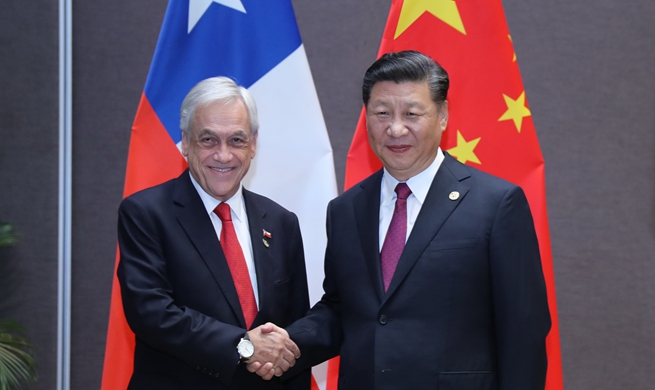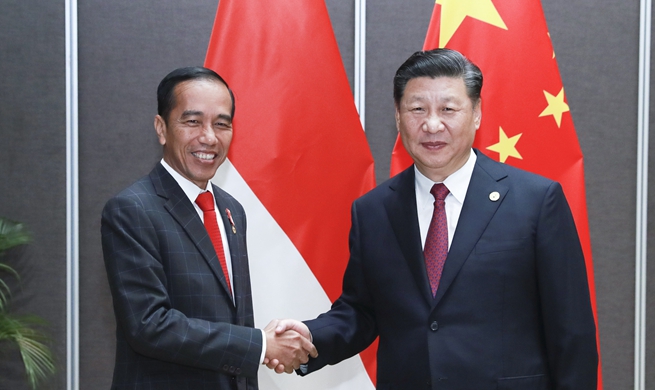PARIS, Nov. 17 (Xinhua) -- In a fresh confrontation with French President Emmanuel Macron, people angry at rising tax on fuel on Saturday blocked motorways across the country.
Dubbed "Yellow Vests" movement, the latest anti-Macron action, was created on social media after several groups have called for blockades and go-slow operations across French cities to oppose the planned fuel tax and the rise in diesel's price, the most commonly used car fuel in France.
About 124,000 people were taking part in 2,000 protests at roundabouts and motorway exits, Interior Minister Christophe Castaner said.
Traffic was backing up on several highways, as a result of the blockade of roads by protestors in many regions.
Pictures showed scores of "Yellow Vest" protestors gathered in the Champs Elysees, the French capital's most vibrant avenue, and tried to disrupt traffic at crosswalks.
"Macron, resignation," chanted protestors while they were heading to the Elysee Palace under the watch of anti-riot police.
The public anger is also reflected in opinion polls. An Odoxa survey released on Friday showed 74 percent of respondents support the movement.
Most Saturday's protests were relatively calm. But, some incidents were reported as drivers not taking part in the social action tried to get around the blockades.
At a blockade on a road in Savoie, southeastern France, a driver, panicked when protesters surrounded her car and began banging on the roof, accelerated and rammed into the crowd. She hit a female protestor who succumbed to her injuries.
The motorist was bringing her sick daughter to the doctor when the protestors blocked her way, Interior Minister Castaner said in televised remarks.
The minister added 47 people were injured. Three of them were in serious situation.
"I call for caution, vigilance and responsibility of all, faced with the risk of organizing undeclared rallies on the public roads," Castaner said.
In late 2017, the National Assembly, where Macron enjoys a large majority, approved an energy bill aimed at rising domestic carbon tax to 39 euros (44.5 U.S. dollars) this year, 47.5 euros in 2019 and 100 euros by 2030 as part of energy transition.
These higher taxes started biting and ignited social roar as oil prices surged recent months.
Standing firm on the fuel tax hikes, Prime Minister Edouard Philippe earlier this week announced a plan worth 500 million euros to help motorists with the lowest incomes, in a move to appease angry public and silent critics.
"The majority hears the remarks, the emotion, sometimes the anger expressed by the French, but going from a system such as it was conceived to a new one always causes difficulties," the prime minister said.
"But, we are convinced that doing nothing against CO2 emissions ... would not be up to the challenges," he added. (1 euro = 1.142 U.S. dollar)













